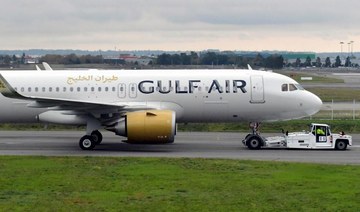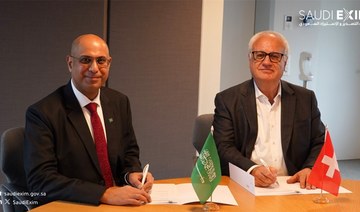ISTANBUL: Turkey’s annual inflation rate rose slightly more than expected to 11.84 percent in December, official data showed on Friday, ending the year close to a government target and probably narrowing the window for more interest rate cuts in 2020.
The Turkish government, which pushed the central bank for aggressive monetary easing last year to lift the economy from recession, had forecast 12 percent inflation at the end of 2019 and sees it edging down to 8.5 percent by the end of 2020.
A Reuters poll had forecast consumer price inflation at 11.56 percent last month, up from 10.56 percent in November.
Month-on-month, consumer inflation stood at 0.74 percent in December, again higher than the poll’s forecast of 0.49 percent.
Turkish inflation readings typically came in lower than expected last year, encouraging the central bank to slash its key policy rate to 12 percent by December from 24 percent in July.
The bank says it sets policy to yield a “reasonable” real interest rate, which has been compressed by the rise in inflation last month. That could curb room for a bit more policy easing in the first half of 2020, analysts said.
“The room for further policy easing is limited (and) recent depreciation pressure in the currency would put more pressure on the central bank to stop,” QNB Finansbank economists wrote in a note.
The lira fell 5 percent against the dollar in the fourth quarter of 2019, due in part to Turkey’s military incursion in Syria and the threat of US sanctions.
Turkish President Tayyip Erdogan fired the central bank’s then chief in early July for not following policy instructions, a move that added to doubts about the bank’s independence.
Separately, on Friday, the bank scheduled an extraordinary general assembly for January for a second straight year, rather than April as in previous years, so that it could speed up the distribution of its annual profits to the government. The meeting will be held on Jan. 20.
HIGHLIGHTS
● Govt expects inflation to fall to 8.5% by end 2020
● Rising inflation, lira weakening curb room for rate cuts
● Lira down 0.3% vs dollar on US-Iran tension
In 2018, annual inflation surged to a 15-year high above 25 percent as Turkey’s currency crisis sent the cost of imports soaring.
Since then, the combination of initially tight monetary policy, weak domestic demand and so-called base effects helped bring price rises down and by October of 2019 the gauge fell to as low as 8.55 percent.
The consumer price index (CPI) rebounded in the last two months primarily due to base effects, though in December a 43 percent annual surge in alcoholic beverages and tobacco prices, following tax rises, also lifted the overall measure.
The producer price index rose 0.69 percent month-on-month in December for an annual rise of 7.36 percent, data from the Turkish Statistical Institute also showed.























